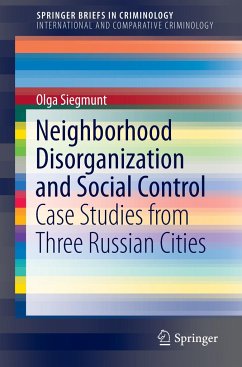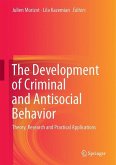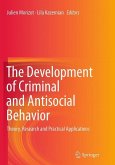This Brief presents a framework for understanding the role of school and neighborhood contexts in the development of self-control. Through the application of Gottfredson and Hirschi's general theory of crime and Shaw and McKay's social disorganization theory, the authors of this Brief examine the importance of family socialization and school and neighborhood for self-control of youth in three Russian cities, replicating results from an earlier study in Germany.
The cases presented in the Brief found that family socialization is important for self-control, but it interacts with school and neighbourhood contexts. According to the study, school social control as a structural characteristic can lead to less delinquency, even if students did not develop self-control. Self-control mediates parental supervision and attachment to parents on one hand, and juvenile delinquency on the other hand. However it was not found to mediate neighbourhood context characteristics.
The results of the study provide a research framework that can be applied to other international, comparative contexts. It will be of interest to researchers in Criminology and Criminal Justice, particularly Developmental and Life-Course Criminology, as well as related fields such as Public Policy and Social Work.
The cases presented in the Brief found that family socialization is important for self-control, but it interacts with school and neighbourhood contexts. According to the study, school social control as a structural characteristic can lead to less delinquency, even if students did not develop self-control. Self-control mediates parental supervision and attachment to parents on one hand, and juvenile delinquency on the other hand. However it was not found to mediate neighbourhood context characteristics.
The results of the study provide a research framework that can be applied to other international, comparative contexts. It will be of interest to researchers in Criminology and Criminal Justice, particularly Developmental and Life-Course Criminology, as well as related fields such as Public Policy and Social Work.
"Olga Siegmunt's book presents the results of the criminological research in the three big Russian cities with about one million inhabitants and more. ... The author poses useful questions and then answers them afterwards. It allows readers to be involved in the thought process. The book can be recommended to a broad audience of criminologists, psychologists, educators, social workers, and so on. The results obtained can be successfully used to improve juvenile delinquency prevention measures, especially in social pedagogic fields." (Anastasiia Monner Lukash, International Journal of Comparative and Applied Criminal Justice, January, 2017)








